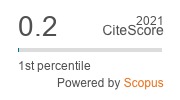Self esteem among children in conflict with law
Abstract
Children in conflict with the law are anyone under 18 years of age who comes into contact with the justice system as a result of being suspected or accused of committing an offence Most children in conflict with the law have committed petty crimes or such minor offences as vagrancy truancy begging or alcohol use Self Esteem is an individual overall positive evaluation to the self High selfesteem consists of an individual respecting himself and considering himself worthy Children in conflict with the law have the right to treatment that promotes their sense of dignity and worth and aims at reintegrating them into society Relationship between selfesteem and sociological factors of children in conflict with law brings better understanding of the study Aim To study the Self Esteem among Children in Conflict with Law at government homes Methods Descriptive Research Design was used The objective of the study was to find the Self Esteem among the children in conflict with law and to find the significant relation between the study variable and other social factors The samples of the study were selected by survey method at government homes among the children who are in conflict with law Rosenbergs Self Esteem Scale 1965 with reliability of correlations ranging from 082 to 088 and internal consistency ranging from 077 to 088 was used for data collection Descriptive statistics and Independent samplet test were used for data analysis Conclusion Self Esteem is satisfaction derived with oneself and this study reveals that only half of the population has high Self Esteem The social work practices and interventions have to be given for another half of the children in conflict with law to enhance the selfesteem




